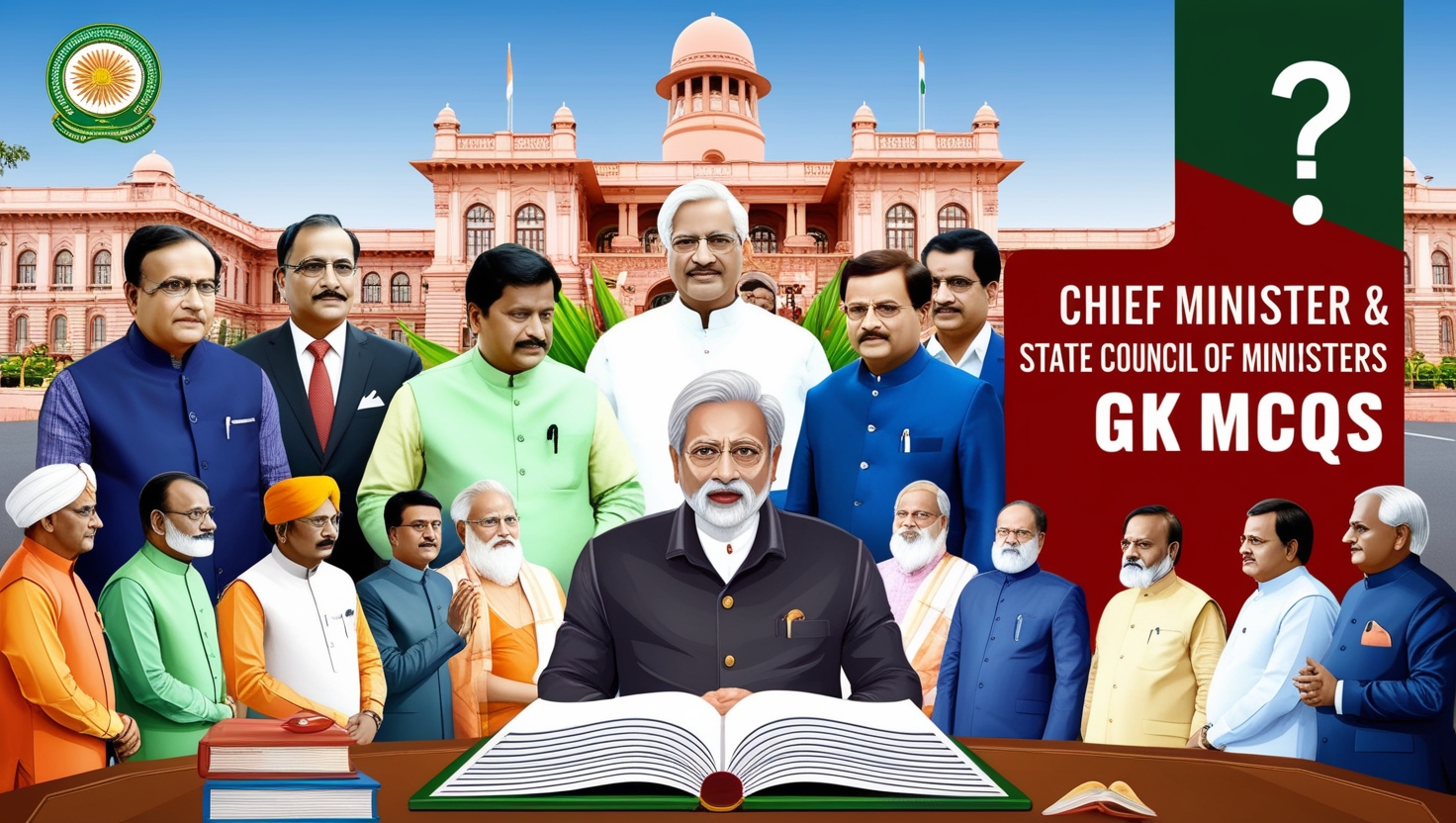
1. Which of the following is not a function of the Chief Secretary of the state?
- To exercise control over the whole Secretariat
- To advise the Chief Minister on all matters related to administration
- To act as a spokesman of the State Government
- To report to the Union Home Minister regarding affairs of the state
Show Answer
Answer: To report to the Union Home Minister regarding affairs of the state
The key functions of the Chief Secretary of the state include (1) To exercise control over the whole Secretariat (2) To advise the Chief Minister on all matters related to administration (3) To act as a spokesman of the State Government.
2. Which among the following is not correctly matched? (Women Chief Ministers)
- Sucheta Kriplani – Uttar Pradesh
- Nandini Satpathy – Orissa
- Shashikala Kakodkar – Goa
- All are correct
Show Answer
Answer: Shashikala Kakodkar – Goa
The first Women Chief Ministers of Indian states are as follows: 1. Sucheta Kriplani – Uttar Pradesh 2. Nandini Satpathy – Orissa 3. Shashikala Kakodkar – Goa 4. Uma Bharti – Madhya Pradesh
3. A person who is not a member of the state legislature can be appointed as Chief Minister for how many months?
- 2 months
- 3 months
- 4 months
- 6 months
Show Answer
Answer: 6 months
A person can be appointed as Chief Minister who is not a member of the state legislature for six months, within which, he should be elected to the state legislature, failing which he ceases to be the Chief Minister of the state.
4. Who administers the oath of office and secrecy to the Chief Minister?
- President
- Governor
- Chief Justice of India
- Chief Justice of the concerned High Court
Show Answer
Answer: Governor
Before the Chief Minister enters his office, the governor of the concerned state administers to him the oaths of office and secrecy. The Chief Minister swears to not directly or indirectly communicate or reveal to any person(s) any matter that is brought under his consideration or becomes known to him as a state minister except as may be required for the due discharge of his duties as such minister.
5. What is the term of the Chief Minister of a state?
- 3 years
- 5 years
- 6 years
- None of the above
Show Answer
Answer: None of the above
The term of the Chief Minister of a state is not fixed by the Constitution of India, and he holds office during the pleasure of the governor. However, this does not mean that the governor can remove him at any time.
6. Who decides the salary and allowances of the Chief Minister?
- President
- Governor
- Parliament
- State Legislature
Show Answer
Answer: State Legislature
The state legislature determines the salary and allowances of the Chief Minister of a state. In addition to the salary and allowances payable to a member of the state legislature, he also gets a sumptuary allowance, free accommodation, travelling allowance, medical facilities, etc.
7. Who allocates and reshuffles the portfolios among ministers of the state legislative assembly?
- Parliament
- President
- Governor
- Chief Minister
Show Answer
Answer: Chief Minister
The governor can appoint only those persons as ministers who are recommended by the Chief Minister of the state. It is the Chief Minister who allocates and reshuffles the portfolios among ministers.
8. Who is the principal channel of communication between the governor and the council of ministers?
- Chief Minister
- Speaker of legislative assembly
- Chairman of legislative council
- President
Show Answer
Answer: Chief Minister
It is the Chief Minister who is the principal channel of communication between the governor and the council of ministers. It is his duty to communicate to the Governor of the state all decisions of the council of ministers relating to the administration of the affairs of the state and proposals for legislation.
9. Who advises the governor with regard to the appointment of the advocate general?
- State Legislative Assembly
- State Legislative Council
- Chief Minister
- Attorney General of India
Show Answer
Answer: Chief Minister
The Chief Minister of the concerned state advises the governor with regard to the appointment of important officials like advocate general, chairman, and members of the state public service commission, state election commissioner, etc.
10. Who advises the governor with regard to the summoning and proroguing of the sessions of the state legislature?
- Governor
- Chief Minister
- Speaker of Legislative Assembly
- Chairman of Legislative Council
Show Answer
Answer: Chief Minister
The Chief Minister of the state, as the leader of the house, advises the governor with regard to the summoning and proroguing of the sessions of the state legislature. He can also recommend the dissolution of the legislative assembly to the governor at any point in time.








Leave a Reply